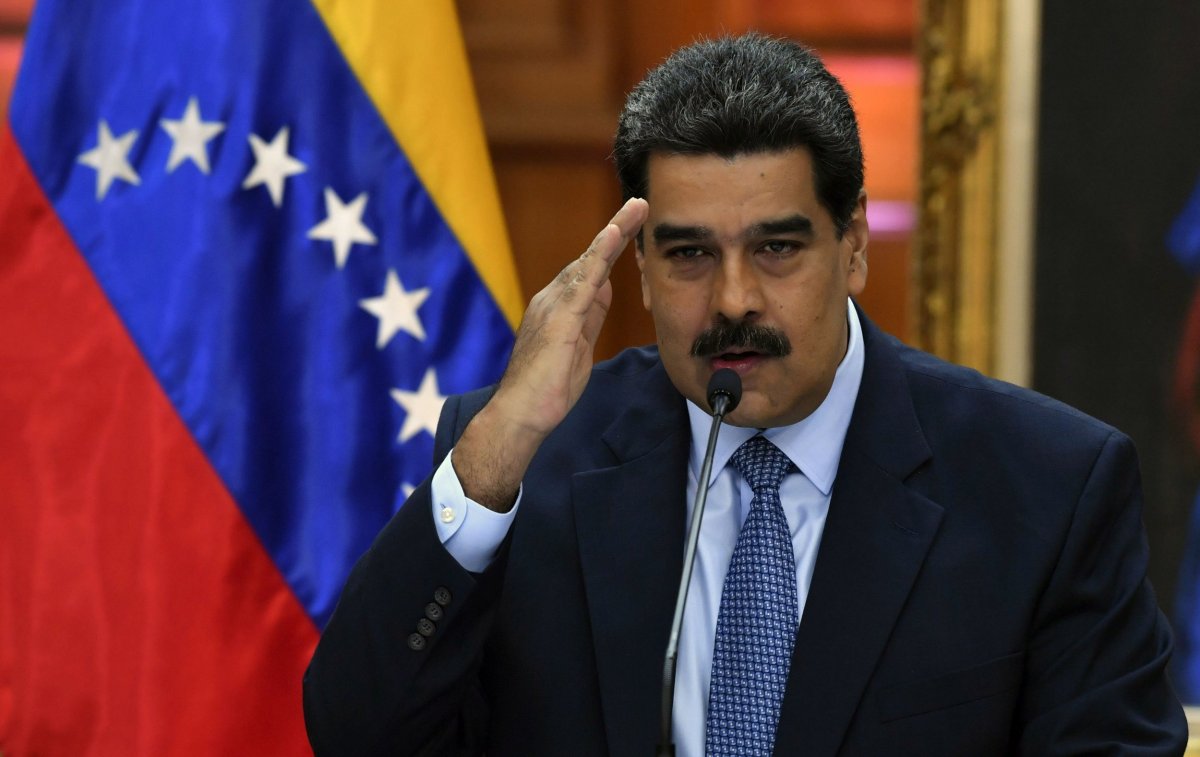Venezuelan President Nicolás Maduro begins his second term in office today, despite the economic crisis wracking his country, increasing international isolation and reports that he has lost the support of his defense minister.
Citing an anonymous U.S. intelligence official, The Washington Post reported that Venezuelan Defense Minister Vladimir Padrino López told the president last month to step down, threatening to resign if he did not.
That Maduro and Padrino are both still in office suggests the minister's gamble did not pay off, and that he decided not to follow through with his threat. A U.S. government source told Reuters The Post's report was credible, explaining, "Nobody [in the U.S. government] would be surprised [if Padrino] stepped back."
The military is a hugely powerful force in the beleaguered nation. Though living standards have plummeted thanks to years of economic crisis, the army has—at least on the surface—remained loyal to Maduro, who took over as president from predecessor Hugo Chávez in 2013.
But Reuters suggested that the military establishment was not immune from the anger spreading throughout the country as conditions worsened. There have been multiple attacks by dissenting soldiers in recent years, including a helicopter assault on the country's supreme court building in June 2017 and an attempt to assassinate Maduro using explosive drones in August 2018.
Nonetheless, Maduro has been able to use the military to undermine and persecute his opponents. The security services—i.e., military, police and paramilitaries—have been accused of serious human rights abuses and even extrajudicial killings.
Soldiers have also been sent to marketplaces to enforce fixed food prices even as hyperinflation renders currency worthless and shops struggle to obtain food, fuel and medical supplies. In June 2018, Maduro said a "great number of mafiosi, wholesalers, thieves and capitalists" had been arrested by soldiers enforcing government prices.
Maduro will be sworn in once again despite warnings from several Latin American countries—including Brazil and Argentina—that he was no longer the legitimate president, The Wall Street Journal noted. Though he was re-elected in May 2018, many observers said the vote was a sham. Peru and Colombia have even said they would now block Venezuelan diplomats from entering their countries.
The contest was allegedly rigged heavily in his favor, The New York Times explained, while turnout was less than 50 percent after opposition parties called for a boycott. Maduro won 5.8 million votes—around 68 percent of all ballots cast—beating his former ally and closest rival Henri Falcon with 1.8 million.
The vote took place roughly one year after Maduro removed all power from the country's parliament—called the National Assembly—and replaced it with a loyalist body called the Constituent Assembly.
National security adviser John Bolton tweeted Thursday morning: "The US will not recognize the Maduro dictatorship's illegitimate inauguration. We will continue to increase pressure on the corrupt regime, support the democratic National Assembly, and call for democracy and freedom in Venezuela."

Uncommon Knowledge
Newsweek is committed to challenging conventional wisdom and finding connections in the search for common ground.
Newsweek is committed to challenging conventional wisdom and finding connections in the search for common ground.
About the writer
David Brennan is Newsweek's Diplomatic Correspondent covering world politics and conflicts from London with a focus on NATO, the European ... Read more
To read how Newsweek uses AI as a newsroom tool, Click here.








